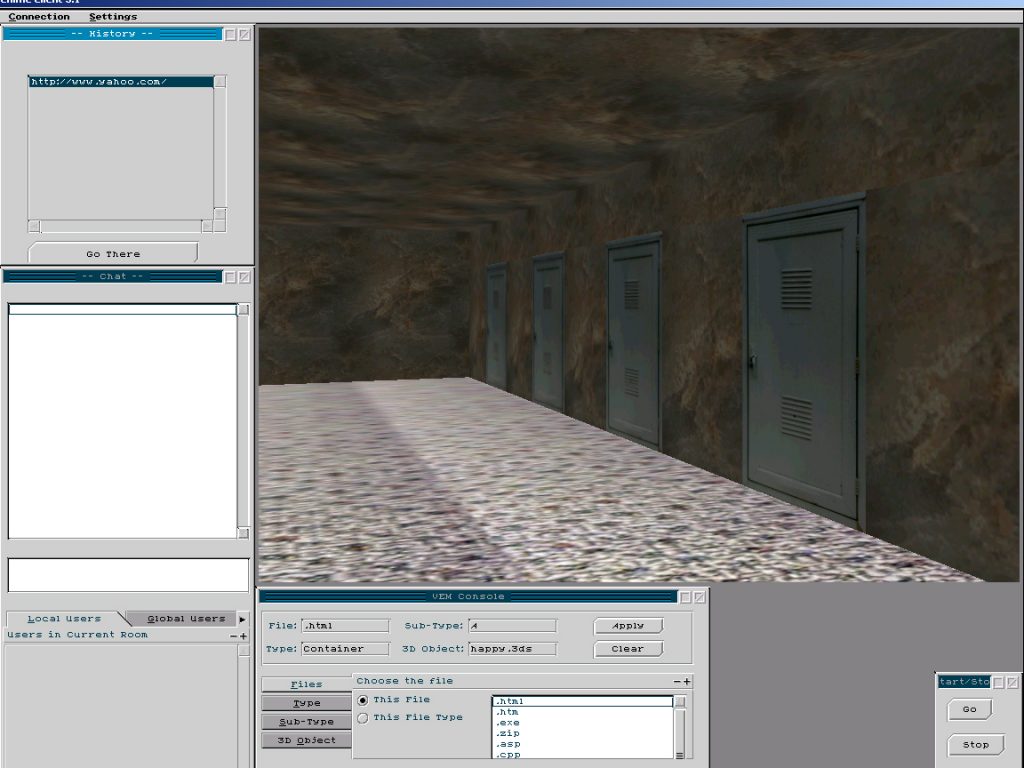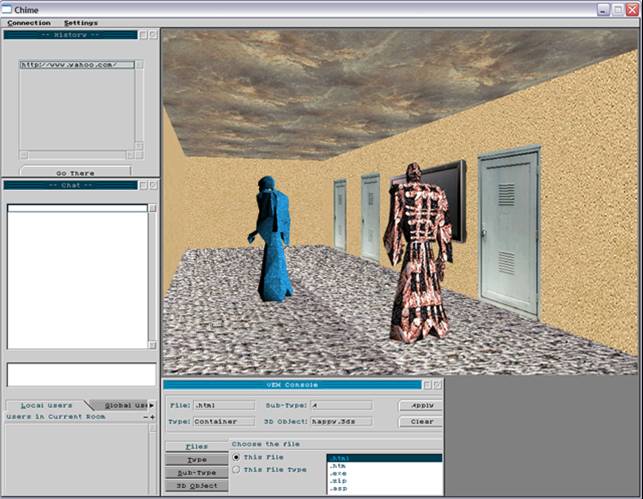XUES
XUES (XML Universal Event Service) is PSL’s sophisticated event manipulation system. XUES is supported under the DARPA DASADA project, and is part of the KX architecture. XUES consists of two parts:
Event Packager (or EP), which serves as a data aggregator, flight recorder, and event transformer for PSL’s KX system. Features include support for extensible event formats and conversion (currently supports Siena, Elvin, and XML); event recording and playback to/from SQL as well as memory; and support for time synchronization and simple event rewriting.
Event Distiller (or ED), which is a flexible event pattern-recognition/gauge architecture. Features include multiple-event pattern recognitions, including “success” and “failure” situations; timebound validation (e.g., events received in order within specified timebounds); wildcards to support event patterns. ED currently communicates either via Siena or direct method calls.
Further information on XUES is available:
- XUES Flyer (6/01)
- Event Packager 1.9.1 documentation and Javadoc (current as of September, 2002)
- Event Distiller 2.0 documentation and Javadoc (current as of April, 2002)
DISCUS
Decentralized Information Spaces for Composition and Unification of Services
The DISCUS project focuses on forming temporary alliances among existing legacy systems that may span organizational boundaries, to rapidly deal with a unique and temporary problem. This integrated suite of tools, termed a Summit, will help operational teams to achieve quick understanding and resolution of the problem at hand.
A summit is formed by composing services from different Service Spaces, where each service space is an autonomous collection of services allowing selective access to its services. The extent of access allowed by a service space to external entities is based on their credentials and the nature of the problem, thus creating a dynamic trust model. A Treaty, representing a contract, is then formed amongst the service spaces of these participating services.
Each service space enforces normative interaction between the ‘enlisted’ services of a summit by intercepting and verifying every operation with the relevant treaty. Once the services within a summit have accomplished their mission, the summit can be dissolved.
DASADA Demo Days (7/02) poster
DASADA Demo Days (7/02) flyer
Overview slides
Kinesthetics eXtreme
Our current mission is to develop a feedback/feedforward infrastructure for run-time monitoring and repair/reconfiguration of component-based distributed systems.
The DARPA Dynamic Assembly of Systems for Adaptability, Dependability, and Assurance (DASADA) Program involves research into software probes and corresponding measurement gauges. The program is developing a standard for the structure of probe events that will be processed by gauges. Columbia University’s Programming Systems Lab, OBJS, BBN, and other DASADA participants have developed an initial version of the proposed schemas.
An example message using the schema is located here. The schemas are intended to function as SOAP blocks. A SOAP message has a header section, a body section, and an optional faults section. Each section can contain one or more blocks. Further information on SOAP can be found at http://www.w3.org/2000/xp/. Current usage is to put the context block in the header and one or more content blocks in the body. There are currently two content blocks defined, one very low level, one very high level. It is assumed that most users will want to define their own content blocks as well.
The low-level probe content block contains information about a particular function/method call, including name, parameters, value of “this,” return value, and exception information. The high-level probe content block identifies an architectural mutation, involving components, connectors, and so forth. A possible usage of this probe format is for the probe to generate low-level events, which are augmented by successive processing with higher-level information.
- Autonomizing Legacy Systems (talk at Almaden Institute Symposium, 4/02)
- An Active Events Model for Systems Monitoring (paper at CDSA, 12/01)
- Available Technologies (ppt) (pdf)
- Year 1 Coordination Plan
- Kickoff Briefing (ppt) (pdf)
- Revised Technical Proposal
- Overview Slide (ppt) (pdf)
MEET
MEET is Columbia’s Multiply Extensible Event Transport. It aims to provide an easy-to-use publish-subscribe infrastructure with the following features:
- Scalability: 106 – 109 publishers and subscribers.
- Survivability: arbitrary connection topology, with rapid switchover to alternate routes. Redundant distributed storage of routing information.
- Extensibility:
- new datatypes and operations can be defined for event filters. An example is the XML processing filter which allows XPath expressions to be used as predicates over XML fields. A subset of operations will be realtime compatible.
- routing policies are extensible. Event publishing / multicast is an open problem, and specific algorithms may be optimal for particular situations.
Worklets/Workflakes
Worklets micro-workflow mobile code adapts computation to component context
Workflakes integrates Cougaar (BBN) macro-workflow for community coordination
Process-aware system repair: KX “continual coordination”
- Worklets Flyer (6/01)
- Mobile Agent Approach to Process-based Dynamic Adaptation of Complex Software Systems
- Process-Orchestrated Software: Towards a Workflow Approach to the Coordination of Distributed Systems (PhD Thesis Proposal, 5/00 Talk)
- see Cougaar
AI2TV
A joint project with Profs. Gail Kaiser, John Kender and Jason Nieh.
Flyer (6/01)
CHIME
FleXML
Flexible XML, backwards-compatible with XML

